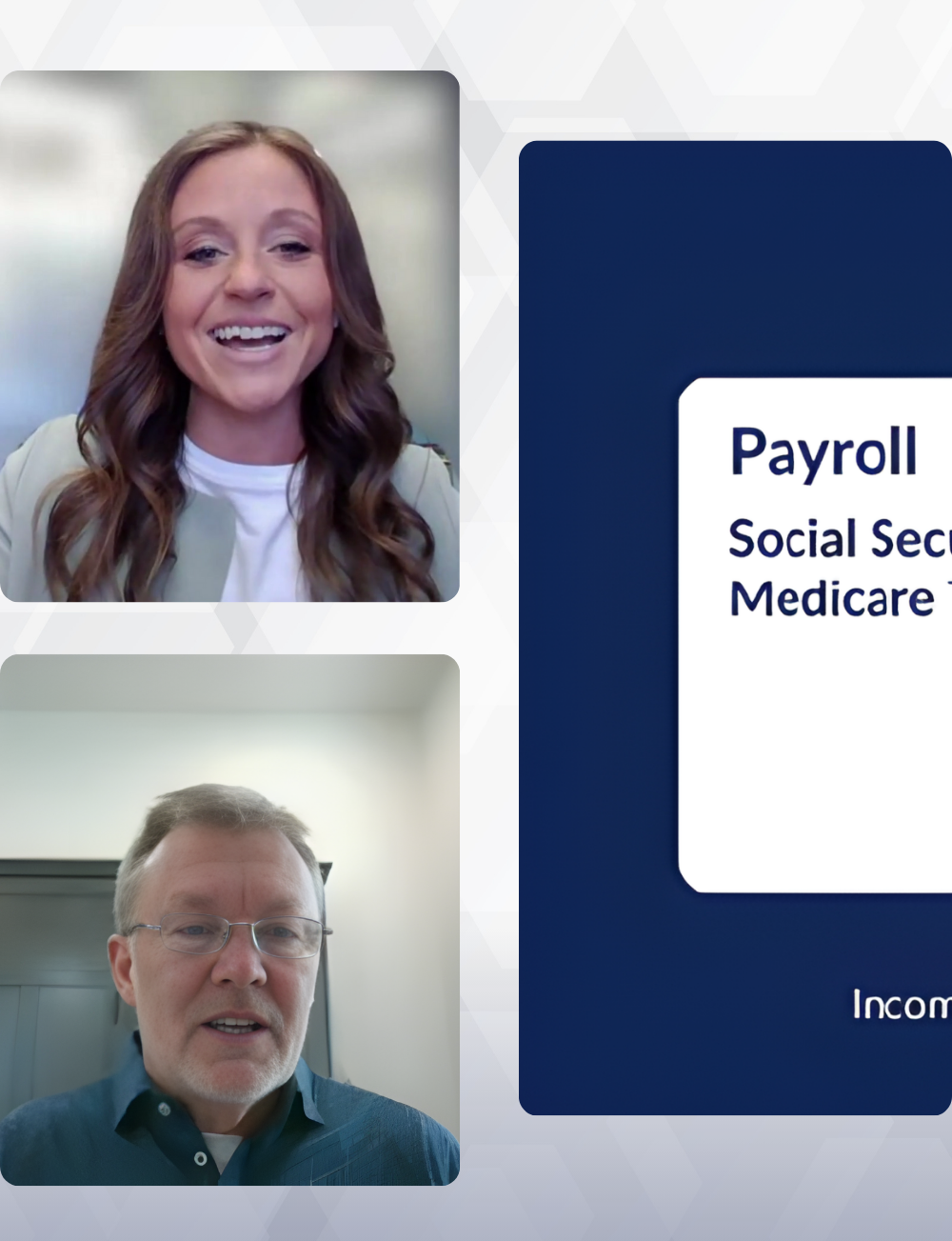Understanding Health Insurance

The Resource Center content, including all videos and other media, is for informational purposes only. You should not construe any such information or other material as legal, tax, investment, financial or other advice. The advice and information contained in the Resource Center is not a substitute for advice from a professional who is aware of the facts and circumstances of your individual situation
One of the most important but often confusing, I know for me,
parts of life in the US is understanding insurance.
Today, we're going to break it down in a way that is simple, clear, and practical.
We'll cover what types of benefits and insurance you can expect as part of your employment, how it fits into your monthly budget, and why insurance matters even if you don't think you'll need it right away.
Join me in welcoming my team member, Amanda, manager of compensation and benefits. She's here to make this complex topic a lot easier to understand. Hi, Amanda. Thank you for joining us today.
Hi, Melissa. Thank you so much for having me. I'm so happy to join this live broadcast.
Yes, we definitely want you to give us insurance one hundred one, so we know what that looks like for us here in the United States. However, before we get into that very you know, that topic, I want our viewers to take a moment to answer the question on the screen. What part of the US insurance do you find most confusing?
Guys, you can take a moment to answer that. Let's see what you guys think about the US health insurance, whether it be like premium, what premium means, how that works, whether it be out of pocket costs. I know that one confused me a bit, especially with the co pay.
If you're on your phone or you're using a laptop, there should be like a, poll tab, that you may be able to see. Oh, I see some of you have already found it. Thank you.
There should be a poll you can go ahead and start putting in your votes, premiums, deductibles, what copay means, coverage details.
Okay. Amanda, I'm seeing that most are a little confused about deductibles. We're gonna be talking about that today. Yeah?
Absolutely. And you know what? It doesn't matter where you're from, even most American citizens find this to be very confusing.
So we get questions all the time, but we will absolutely be covering all of those topics today.
Okay, go ahead. So it looks like deductibles was the winner. We had close to fifty percent that's saying that they didn't really understand deductibles. So I'm gonna go ahead and give you the floor, Amanda, to give us insurance one hundred one.
All right. So first off, we just want to talk about what insurance is and why does it matter? In the US, insurance helps protect you from paying large medical bills out of pocket. You pay a small amount each month called a premium, and in return, the insurance company helps cover the cost of your care.
Even if you're relatively healthy and rarely visit a doctor, insurance gives you that financial protection in case something unexpected happens, like an accident, an emergency, or an illness. That's why it's critical, or it is a critical part of living in the US.
Now, most of our healthcare professionals, most Americans get insurance through their employer here in the US.
At Health Carousel, you'll be offered coverage as part of your employment, and it's an important piece of your full circle of support.
Employer-basedbased insurance is often more affordable than getting coverage on your own because the employer shares in the costs, and it also gives you access to group rates and broader coverage.
When you're building your monthly budget, you'll want to just plan for your insurance premium, because it's usually a fixed amount that's going be taken out of your paycheck.
So, what does insurance cover? Your health insurance plan will typically cover things like your preventive care, so any kind of, you know, just physicals or any kind of doctor's visits like that, any kind of doctor's visits when you're sick, emergency care, hospitalizations, and prescription medications.
Some plans even offer dental and vision options.
When we talk about insurance, you'll hear some common terms like the premium. So that again is what you're going to pay out of your paycheck for, and it's just the cost of having insurance. There's also the deductible. That's what you're going to pay before your insurance starts covering costs.
A copay is a fixed fee for certain services like going to the doctor.
And then an out of pocket maximum, that's the most that you're going to pay in the calendar year before your insurance covers everything at one hundred percent.
Understanding these terms helps you make smart choices and avoid unexpected expenses.
So how do you choose the right plan for you?
During your onboarding or during open enrollment, you'll select a plan based on your personal needs. You'll consider things like how often you go to the doctor, whether you have a family to cover, or if you need regular prescriptions. But don't worry, our team is available to walk you through the options so that you can choose the coverage that's best for you.
So the next part is just how do you budget for the insurance? Now, again, health insurance is that fixed monthly expense. So it's going to be, it needs to be included in your financial planning. It's just as important as budgeting for your housing, your transportation, and your food.
Your monthly premium, while it is fixed, the amount is going to depend on what kind of plan you enroll in, who you have covered. So if you have a spouse on the plan or children, and planning for this in advance will help you stay on track financially.
It's a key part of how we support you through your transition, making sure that you not only have access to healthcare, but that you're prepared for the cost of it as well.
But health insurance is not all. In addition to that health and medical insurance, many of our healthcare professionals who work for us have access to a wide range of benefits, and it's all part of our full circle of support. So these include things like our dental and vision coverage.
We have retirement savings options through our four zero one ks. We have life insurance. We have paid time off. We also have mental health support and wellness resources.
These benefits are designed to support every part of your US journey, not just your work, but your health, your financial future, and your family life as well.
When we say full circle support, we mean that we help you succeed in all areas, not just on assignment, but in your home and beyond.
So, before we close, let me leave with three takeaways from today's discussion. Even if you rarely visit the doctor, insurance gives you peace of mind by covering those unexpected emergencies and large expenses. It's one of the most important tools to protect both your health and your finances in the US.
Employer based insurance is the most common and the most effective option in the US. At Health Carousel, this is part of the support that you'll receive with guidance every step of the way.
Related Resources
Keep Exploring More Resources
Looking for more guidance? Browse our full collection of resources to support you throughout your journey.
.webp)






.webp)